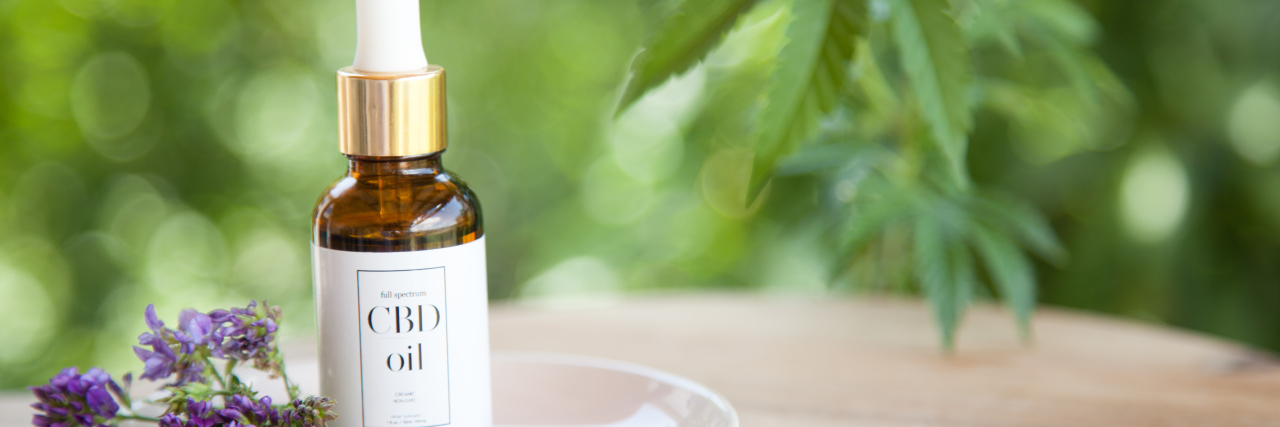Is It Legal to Give CBD to Children?
Editor's Note
Any medical information included is based on a personal experience. For questions or concerns regarding health, please consult a doctor or medical professional.
Nothing in this article should be considered legal advice. For questions or concerns regarding a legal matter, please consult an attorney.
Cannabidiol (CBD) has been in the news, is on every gas station shelf, and infused into everything including jogging suits. So if CBD is “legal” does that mean I can give it to my minor with Ehlers-Danlos syndrome? What about my granddaughter with autism? Just what are the legalities surrounding CBD and minors?
The recent 2018 Farm Bill has created a lot of confusion regarding cannabidiol (CBD). Many are under the impression that this bill legalized CBD, however states need to specifically opt in. Not every state in the United States has done so. In addition, while the Farm Bill did deschedule hemp, it placed cannabinoids under the FD&C regulatory framework. This makes the legality of your local CBD tincture extremely convoluted.
Nowhere is this more prevalent than when parents assume CBD is legal to administer to minors. This belief is reinforced by the CBD industry, perhaps because it helps their bottom lines. Trusting parents administer CBD to their child without knowing some of the real risks involved. All it takes is one “concerned person” and you can find yourself on the receiving end of a Child Protective Services call. As one mother writes, “People are very judgmental. [The case] was dismissed, but it turned my life upside-down.” How is this happening, even in states that have legalized hemp CBD extracts?
Technically, there is no such thing as THC-free cannabidiol isolate. Some of the main reasons cited for CPS cases are “drugging the child” or “child endangerment.” All cannabidiol products have trace tetrahydrocannabinol (THC) in them, even isolates. Lab reports usually don’t measure far enough to report the trace THC, but it is always there. For example, a company using CBD isolates sent their samples to NASCAR because they wanted to sponsor a car. Their independent lab came back with a 0.000% THC result. When NASCAR’s lab tested it, the results came back 0.00006+.
When it comes to minors, you can always be accused of giving your child THC, regardless of what the product says. No state allows parents to give their children THC outside any state-regulated cannabis programs. By default, you are giving your child an illegal substance, and you can be subject to investigation.
This also brings us to the Federal Schedule I status of cannabis. Cannabis is still not legal anywhere in the United States under federal law. Many states are experimenting with autonomy and challenging the federal ban, but the protection is not guaranteed, and CPS is often called on parents following state rules. A parent of a child with a disability vented, “Many people still do not agree with or understand the medicinal use of cannabis. People judge us, they talk about us… they have even called Child Protective Services on us despite having obtained this medication legally.”
Several states have chosen to decriminalize small amounts for adult use, and/or allow for medical necessity defenses. Some of these states have voted to protect parents who choose to give their children hemp cannabidiol, but these are highly restricted and monitored programs. Parents must comply with state law at all times, else risk losing any potential protection in the event CPS is called. The looming threat of federal intervention often outweighs the state protections for onlookers and can frequently cause someone to report the case.
Professions like providers, physicians, and school personnel are subject to mandatory reporting laws. It is up to the specific individual whether they believe your case falls within the mandatory regulations. Each of these groups is subject to some federal oversight and has to abide by federal law to keep funding or licensure. Until this changes, the risk for CPS involvement will remain high for parents.
For parents and their families, it is important to educate yourself to protect yourself. If you are considering CBD use in a minor, make sure you abide by state laws and have researched using direct sources. Look at state and local municipality information, and avoid getting information from blogs, social media groups and salespeople. The information is often conflicting and may not apply to you. Protect your family first and make informed decisions.
Getty image by Caitlin Riley.

